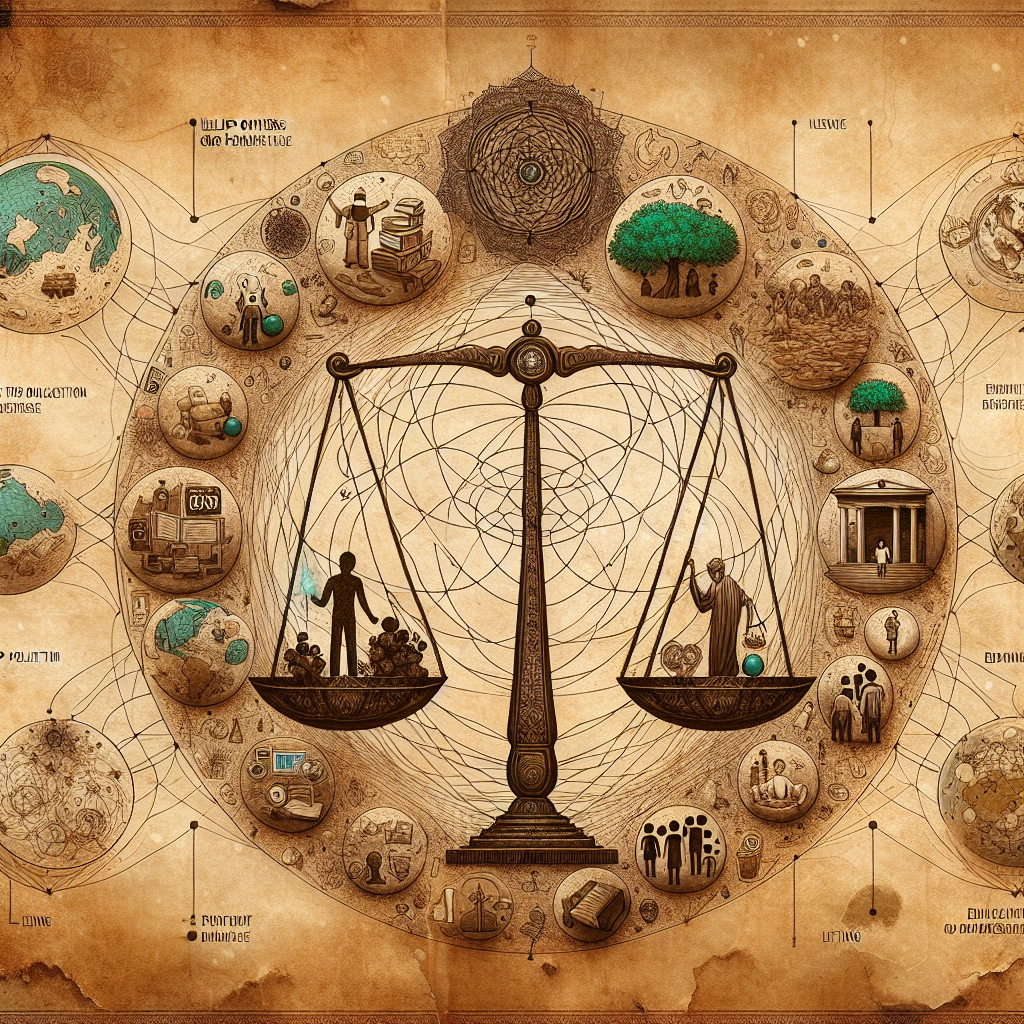The Karma Equation: How Our Actions Shape Our Destiny
Karma is a concept that transcends cultures and religions, a principle that suggests a direct correlation between our actions and their consequences. Derived from the Sanskrit word meaning "action" or "deed," karma is an ancient doctrine embraced by Hinduism and Buddhism, but its relevance has stretched far beyond these philosophical roots. Today, the notion of karma provides a framework through which we can understand the moral dimensions of our actions and their profound influence on our destiny. This article explores the Karma Equation, illustrating how our choices shape our lives and the world around us.
Understanding the Karma Equation
At its core, the Karma Equation can be simplified to a straightforward formula: Actions + Intentions = Consequences. This equation encapsulates the idea that everything we do is interconnected, and the energy we put into our actions reflects back to us in various forms. However, the equation is not just about the actions; it emphasizes the importance of intention behind those actions.
Actions: Every decision we make carries weight. Whether it’s a random act of kindness, a harmful word, or an act of selfishness, our actions set into motion a series of reactions that can resonate far beyond our immediate environment.
Intentions: The motivations behind our actions are crucial. A kind act done out of genuine love will produce different consequences than the same act done with ulterior motives. This means that karma is not just a checklist of deeds; it’s a reflection of our inner character and values.
Consequences: The effects of our actions can manifest in numerous ways—emotionally, psychologically, or even materially. Good deeds often lead to positive outcomes, while harmful actions invariably return to us, sometimes in unexpected ways.
The Cycle of Karma
Karma operates within a cyclical framework. It is not a system of immediate retribution or reward, but rather a continuum of actions and their outcomes that unfolds over time. This means that while we may not experience the consequences of our actions immediately, they will come to fruition eventually.
The Immediate Effects: Some actions yield quick consequences. For example, helping a friend in need may strengthen your bond. Conversely, a harsh word can lead to immediate hurt feelings.
The Delayed Effects: Many consequences take time to surface. A career decision made with integrity may lead to long-term success, while betrayal may haunt someone’s reputation for years.
- The Ripple Effect: Actions often produce a ripple effect. A simple act of kindness can inspire others to pay it forward, creating a chain reaction of positivity. Alternatively, negative actions can breed conflict and mistrust.
Personal and Collective Karma
While individuals are responsible for their own karma, it is essential to recognize that we are social beings living in a collective environment. Our actions do not just affect our individual destinies; they contribute to the collective karma of communities, societies, and even the planet.
Personal Karma: This refers to the karma each person accumulates based on their choices, actions, and intentions. It is an individual journey of learning and growth, as we confront the consequences of our deeds—good or bad.
Collective Karma: This concept emphasizes how the actions of individuals can culminate in shared outcomes affecting larger groups. For instance, societal injustices, environmental degradation, and cultural evolutions can be seen as manifestations of collective karma formed by the choices made by many.
The Role of Mindfulness and Reflection
Embracing the Karma Equation requires a level of mindfulness and reflection. Understanding how our actions impact our lives and those of others demands a conscious effort to evaluate our choices. Here are some methods to develop mindfulness regarding karma:
Self-Reflection: Regularly reflect on your choices. Assess your motivations and the potential long-term impacts of your actions. Journaling can help establish clarity.
Practice Empathy: Put yourself in others’ shoes. Understanding how your actions affect those around you encourages a more compassionate approach to decision-making.
- Mindful Decision Making: Take time to consider the consequences of your actions. This might mean pausing before reacting emotionally or being deliberate in your choices to ensure they align with your values.
Embracing Positive Karma
The Karma Equation is not a means of punishment but rather an invitation to create positive outcomes through mindful living. Here are practical steps to embrace positive karma:
Act with Intention: Cultivate awareness around your intentions. Are you acting out of love, compassion, or hoarding values? Strive to choose kindness.
Engage in Altruism: Volunteering your time, supporting those in need, or simply offering a smile can generate positive energy, enhancing both your life and the lives of others.
Forgive and Let Go: Holding onto grudges or negative feelings adds to your negative karma. Practice forgiveness as a means of releasing negativity and opening the doorway to positive experiences.
- Cultivate Gratitude: A grateful mindset allows positive energy to flow into your life, creating a foundation for stronger relationships and encouraging a cycle of abundance.
Conclusion
The Karma Equation is a powerful reminder of the interconnected nature of our actions and their consequences. By understanding and embracing this concept, we become architects of our destiny, equipped to make choices that not only benefit ourselves but also the world at large. In recognizing that every deed—no matter how small—carries with it the potential for profound impact, we can move forward with intention, compassion, and a desire to create a better reality for ourselves and others.
FAQs
1. What is karma?
Karma is the principle that our actions have consequences, shaping our future experiences based on our deeds and intentions.
2. Can karma affect different aspects of life?
Yes, karma influences emotional, psychological, and material aspects of life. Positive actions often lead to positive outcomes, while negative actions generate adverse effects.
3. Is karma immediate?
Karma can manifest both immediately and over time. Some actions yield quick consequences, while others take time to surface.
4. How can I create positive karma?
Creating positive karma involves acting with intention, engaging in altruism, practicing empathy, and fostering a mindset of gratitude.
5. Is karma a form of punishment?
No, karma is not a punishment but a natural law reflecting the interconnectedness of our actions and their consequences, encouraging personal growth and self-awareness.
It seems like your message got cut off. How can I assist you? If you have a specific prompt in mind, please share!, #Karma #Equation #Actions #Shape #Destiny, #Karma #Equation #Actions #Shape #Destiny, 1736322835, the-karma-equation-how-our-actions-shape-our-destiny




